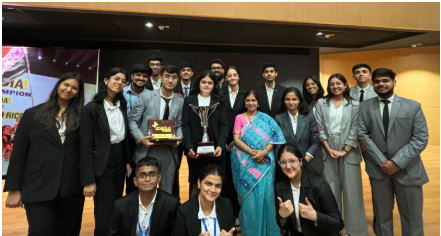Delhi, a bustling metropolitan melting-pot of a city, is home to more than 3 million migrants,most of whom move to the city in search of a livelihood for themselves and their families. While the capital can provide better job opportunities, it can also be crushing in terms of poverty, discrimination, and exploitation. These adversities have an even harsher effect on migrant women, who usually have little access to viable sources of income. Facilities like education and quality healthcare remain distant dreams for most.
“Project Dor,” a social entrepreneurship project run by the students of Kirori Mal College, DU, came as a ray of hope for a community of migrant women from Bihar and Jharkhand. Project Dor was started in 2016 under the international non-profit organization – Enactus, which aims to
create businesses for underprivileged communities, working towards economic self-sufficiency, environmental sustainability, as well as the overall holistic development of the community it works with.
Project Dor produces neo-ethnic scarves, dupattas and cushion covers through the process of “tie-and-dye”. The products have a wide range of colours and patterns and are also customizable according to the buyer’s preference. Through this project, the members of Enactus KMC are trying to save a traditional Indian art form from dying out, and reminding consumers of the beauty of a process which saw one of its earliest origins in our country. Each one of their products is handmade and handcrafted.

Successfully tapping several offline and online markets, Dor has evolved to become a full-fledged project that has brought an art form back from the brink of extinction. From putting up stalls in prominent places such as The Lalit and Dilli Haat, to having the products sold on the Facebook store and Amazon, Dor has expanded the reach and increased the demand tenfold.
Even though the pandemic and lockdown have been a major restraint to the project, it still surfed through it and continued to maintain its reach across India. We were victorious enough to attain production efficiency, generate a considerable amount of revenue and help our community in these trying times. The team was successful in welcoming the change brought about by the pandemic and adopted various online measures to help sustain the project in these trying times.
Everything comes together to ultimately benefit the migrant workers who live within the expanse of this intimidating city. Project Dor has helped fulfil its tagline of “Khushiyon Ki Dor” by bringing in joy, satisfaction, and above all, a sense of fulfilment in their lives, from the fruits of their labor






Leave A Comment